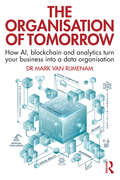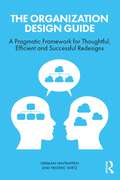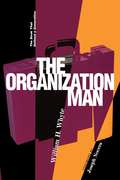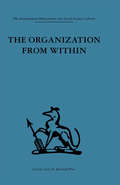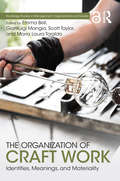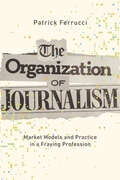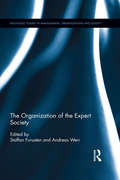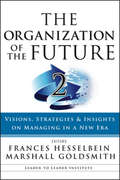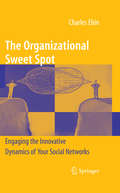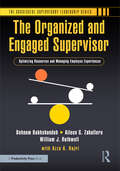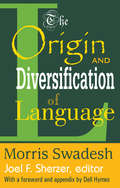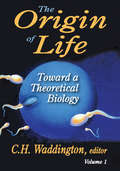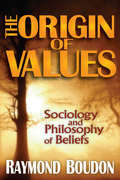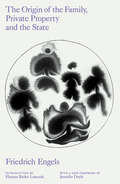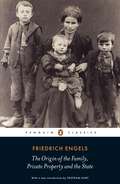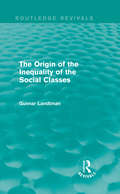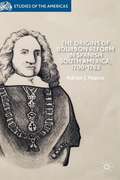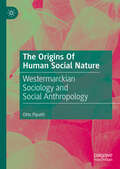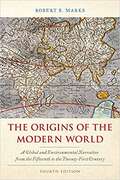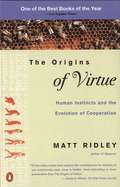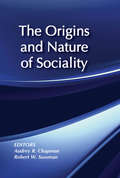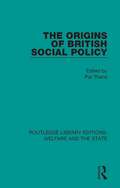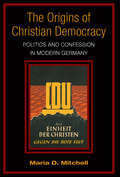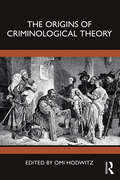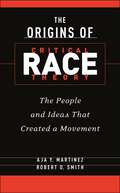- Table View
- List View
The Organisation of Tomorrow: How AI, blockchain and analytics turn your business into a data organisation
by Mark Van RijmenamThe Organisation of Tomorrow presents a new model of doing business and explains how big data analytics, blockchain and artificial intelligence force us to rethink existing business models and develop organisations that will be ready for human-machine interactions. It also asks us to consider the impacts of these emerging information technologies on people and society. Big data analytics empowers consumers and employees. This can result in an open strategy and a better understanding of the changing environment. Blockchain enables peer-to-peer collaboration and trustless interactions governed by cryptography and smart contracts. Meanwhile, artificial intelligence allows for new and different levels of intensity and involvement among human and artificial actors. With that, new modes of organising are emerging: where technology facilitates collaboration between stakeholders; and where human-to-human interactions are increasingly replaced with human-to-machine and even machine-to-machine interactions. This book offers dozens of examples of industry leaders such as Walmart, Telstra, Alibaba, Microsoft and T-Mobile, before presenting the D2 + A2 model – a new model to help organisations datafy their business, distribute their data, analyse it for insights and automate processes and customer touchpoints to be ready for the data-driven and exponentially-changing society that is upon us This book offers governments, professional services, manufacturing, finance, retail and other industries a clear approach for how to develop products and services that are ready for the twenty-first century. It is a must-read for every organisation that wants to remain competitive in our fast-changing world.
The Organization Design Guide: A Pragmatic Framework for Thoughtful, Efficient and Successful Redesigns
by Herman Vantrappen Frederic WirtzOrganization redesign exercises consume enormous time, resources and energy, and yet they so often get stuck midway or fail to deliver the aspired benefits. This groundbreaking book offers a comprehensive guide, enabling executives and their teams to have nuanced and in-depth discussions about substantive design choices. Once these choices are clear, the teams can confidently initiate the change process. The book brings together the building blocks of organization design thinking into a logical flow. It offers a high-quality framework, with each building block broken down into specific design questions. For each of the five categories of design variables – architecture, processes, culture, people and technology – the book enables executives to discover and weigh up a variety of situation-specific design alternatives. The book steers clear of academic abstractions, simplistic formulaic solutions, flavor-of-the-year debates and misleading anecdotes from today’s superstar firms. It is written for smart executives at mainstream companies who realize that organization design choices are contextual and influenced by their company’s specific history. The book presents a pragmatic framework that guides managers in search of a conclusive and efficient organization design process. It is relevant to C-suite executives and directors, as well as senior and middle managers, internal project leaders and organization design consultants.
The Organization Man
by William H. Whyte Joseph NoceraRegarded as one of the most important sociological and business commentaries of modern times, The Organization Man developed the first thorough description of the impact of mass organization on American society. During the height of the Eisenhower administration, corporations appeared to provide a blissful answer to postwar life with the marketing of new technologies--television, affordable cars, space travel, fast food--and lifestyles, such as carefully planned suburban communities centered around the nuclear family. William H. Whyte found this phenomenon alarming.As an editor for Fortune magazine, Whyte was well placed to observe corporate America; it became clear to him that the American belief in the perfectibility of society was shifting from one of individual initiative to one that could be achieved at the expense of the individual. With its clear analysis of contemporary working and living arrangements, The Organization Man rapidly achieved bestseller status.Since the time of the book's original publication, the American workplace has undergone massive changes. In the 1990s, the rule of large corporations seemed less relevant as small entrepreneurs made fortunes from new technologies, in the process bucking old corporate trends. In fact this "new economy" appeared to have doomed Whyte's original analysis as an artifact from a bygone day. But the recent collapse of so many startup businesses, gigantic mergers of international conglomerates, and the reality of economic globalization make The Organization Man all the more essential as background for understanding today's global market. This edition contains a new foreword by noted journalist and author Joseph Nocera. In an afterword Jenny Bell Whyte describes how The Organization Man was written.
The Organization from Within: A comparative study of social institutions based on a sociotherapeutic approach
by Cyril SoferTavistock Press was established as a co-operative venture between the Tavistock Institute and Routledge & Kegan Paul (RKP) in the 1950s to produce a series of major contributions across the social sciences. This volume is part of a 2001 reissue of a selection of those important works which have since gone out of print, or are difficult to locate. Published by Routledge, 112 volumes in total are being brought together under the name The International Behavioural and Social Sciences Library: Classics from the Tavistock Press. Reproduced here in facsimile, this volume was originally published in 1961 and is available individually. The collection is also available in a number of themed mini-sets of between 5 and 13 volumes, or as a complete collection.
The Organization of Craft Work: Identities, Meanings, and Materiality (Routledge Studies in Management, Organizations and Society)
by Scott Taylor Emma Bell Gianluigi Mangia Maria Laura ToraldoThis edited book focuses on the organization and meaning of craft work in contemporary society. It considers the relationship between craft and place and how this enables the construction of a meaningful relationship with objects of production and consumption. The book explores the significance of raw materials, the relationship between the body, the crafted object and the mind, and the importance of skill, knowledge and learning in the making process. Through this, it raises important questions about the role of craft in facing future challenges by challenging the logic of globalized production and consumption. The Organization of Craft Work encompasses international analyses from the United States, France, Italy, Australia, Canada, the UK and Japan involving a diverse range of sectors, including brewing, food and wine production, clothing and shoe making, and perfumery. The book will be of interest to students and academic researchers in organization studies, marketing and consumer behaviour, business ethics, entrepreneurship, sociology of work, human resource management, cultural studies, geography, and fashion and design. In addition, the book will be of interest to practitioners and organizations with an interest in the development and promotion of craft work.
The Organization of Journalism: Market Models and Practice in a Fraying Profession
by Patrick FerrucciNew business models have splintered journalists’ once-monolithic professional culture. Where the organization once had little sway in the newsroom, in today’s journalism ecosystem, owners and management influence newsgathering more than ever. Using rich interviews and participant observation, Patrick Ferrucci examines institutions with funding mechanisms that range from traditional mogul ownership and online-only nonprofits to staff-owned cooperatives and hedge fund control. The variations in market models have frayed the tenets of professionalization, with unique work cultures emerging from each organization’s focus on its mission and the implantation of its own processes and ethical guidelines. As a result, the field of American journalism no longer shares uniform newsgathering practices and a common identity, a break with the past that affects what information we consume today and what the press will become tomorrow. An inside look at a fracturing profession, The Organization of Journalism illuminates the institution’s expanding impact on newsgathering and the people who practice it.
The Organization of the Expert Society (Routledge Studies in Management, Organizations and Society)
by Staffan Furusten Andreas WerrIt is often claimed that we live in an expert society, a society where more and more individuals take expert roles in increasingly narrow fields. In contrast to more traditional experts most of these new experts lack generally accepted mechanisms for the certification and legitimation of their expertise. This book focuses on these new as well as established experts and the efforts undertaken to secure and legitimate their expertise. We view these efforts as organizing attempts and study them on four different levels – the society, the market, the organization and the individual. Based on empirical studies on these four levels of analysis, The Organization of the Expert Society makes the argument that current organizing initiatives in the expert society are based in an objectifying view of expertise that risks concealing and downplaying key aspects of expertise. Well-intended organizing initiatives in the expert society thus run the risk of promoting ignorance rather than securing expertise. Focusing on a current, general and global phenomenon, the rise and organization of an expert society. The Organization of the Expert Society will be key reading for scholars, academics and policy makers in the management fields of Organizational Theory, Management Consulting, Organizations & Society, Critical Management Studies as well as the disciplines of Sociology, Political Science and Social Anthropology.
The Organization of the Future 2: Visions, Strategies, and Insights on Managing in a New Era
by Marshall Goldsmith Frances HesselbeinWith 26 inspiring chapters, this book celebrates the wisdom of some of the most recognized thought leaders of our day: emerging and established experts who share their unique vision of what the organization of the future should look like and must do to survive in the turbulent 21st Century. <P><P> Outsmart Your Rivals by Seeing What Others Don't, Jim Champy Organization Is Not Structure but Capability, Dave Ulrich & Norm Smallwood The Leader's Mandate: Create a Shared Sense of Destiny, James M. Kouzes & Barry Z. Posner A Different Kind of Company, Srikumar S. Rao Free to Choose: How American Managers Can Create Globally Competitive Workplaces, James O'Toole Managing the Whole Mandate for the Twenty-First Century: Ditching the Quick-Fix Approach to Management, Paul Borawski & Maryann Brennan The Values That Build a Strong Organization, Thomas J. Moran Revisiting the Concept of the Corporation, Charles Handy Mobilizing Emotions for Performance: Making the Most of the Informal Organization, Jon R. Katzenbach & Zia Khan Beyond Retirement: Mature Workers Are Essential Talent for Organizations of the Future, Richard J. Leider The Best Hope for Organizations of the Future: A Functioning Society, Ira A. Jackson Reframing Ethics, Spirit, and Soul, Lee G. Bolman &Terrence E. Deal Environment Drives Behavior and Expectations, Bill Strickland with Regina Cronin Dynamic Organizations for an Entrepreneurial Age, Christopher Gergen & Gregg Vanourek Multidimensional, Multinational Organizations of the Future, Jay R. Galbraith Designing Organizations That Are Built to Change, Edward E. Lawler III & Christopher G. Worley Refounding a Movement: Preparing a One-Hundred- Year-Old Organization for the Future, Kathy Cloninger Three Challenges Facing Nonprofits of the Future: People, Funding, and Strategy, Roxanne Spillett Pioneering the College of the Future: Building as We Walk, Darlyne Bailey The Organization of the Future Will Foster an Inclusive Environment, Lee Cockerell The Leader as Subculture Manager, Edgar H. Schein The New High-Performance, Horizontal Organization, Howard M. Guttman The Leadership Blueprint to Achieve Exponential Growth, David G. Thomson Leadership Judgment: The Essence of a Good Leader, Noel M. Tichy & Christopher DeRose The Leader of the Future, William A. Cohen Leadership by Perpetual Practice, Debbe Kennedy
The Organizational Sweet Spot
by Charles EhinEmployee disengagement is one of the most pressing problems plaguing managers today hampering the innovation capacities of countless organizations. According to recent polls, some 20 percent of workers report feeling disconnected from their jobs, in an environment of stagnating wages, massive layoffs, rising health care costs, and other factors that contribute to alienation, distrust, and apathy. In The Organizational Sweet Spot, Dr. Charles Ehin takes a refreshing new look at what it will take to reengage disaffected workers and boost their resolve to advance novel ideas. Applying the latest research from such fields as evolutionary psychology, social neuroscience, organizational behavior, anthropology, and social network analysis, Ehin demonstrates how employee disengagement is rooted in a fundamental misalignment between people's instinctive drive to develop their personal and group identities through informal or "emergent" relationships and the ways in which organizational goals and profit motives are executed through formal bureaucracy. The challenge for today's organizations--which operate under constantly changing conditions--is to narrow this gap, that is, to find the "sweet spot", where the formal and informal elements of the organization overlap. Ehin provides practical tools for leaders to support this "shared access domain" to improve productivity, catalyze innovation, and inspire exceptional performance. His new model is likely to reverberate throughout current management thinking as we move toward creating more vital and meaningful workplaces.
The Organized and Engaged Supervisor: Optimizing Resources and Managing Employee Experiences (Successful Supervisory Leadership)
by William J. Rothwell Aileen G. Zaballero Behnam BakhshandehBalancing organization and engagement is the cornerstone of a workplace where supervisors and their teams can genuinely thrive. Effective organization goes beyond checking boxes and meeting quotas—it’s about creating an environment where clear direction and supportive leadership enable everyone to do their best work. Supervisors play a pivotal role in this dynamic, navigating their own tasks while guiding their teams and meeting the expectations of clients and higher management. The challenge is maintaining this balance, managing projects, and leading with limited time and resources. Success demands more than good intentions; it requires strong organizational skills to foster harmony, streamline efforts, and reduce stress.However, even the most meticulously organized supervisor can’t optimize their teams without veritable engagement. Lasting success comes from integrating structure with human connection. A great supervisor allocates resources effectively and builds an atmosphere where employees feel valued, motivated, and genuinely connected to their work. This book is your comprehensive guide to mastering this delicate balance. Packed with practical insights and proven strategies, this book will help elevate your leadership skills and team dynamics, creating a culture where productivity and commitment are seamlessly intertwined.
The Origin and Diversification of Language
by Morris SwadeshMorris Swadesh, one of this century's foremost scientific investigators of language, dedicated much of his life to the study of the origin and evolution of language. This volume, left nearly completed at his death and edited posthumously by Joel F. Sherzer, is his last major study of this difficult subject.Swadesh discusses the simple qualities of human speech also present in animal language, and establishes distinctively human techniques of expression by comparing the common features that are found in modern and ancient languages. He treats the diversification of language not only by isolating root words in different languages, but also by dealing with sound systems, with forms of composition, and with sentence structure. In so doing, he demonstrates the evidence for the expansion of all language from a single central area. Swadesh supports his hypothesis by ""exhibits"" that conveniently present the evidence in tabular form. Further clarity is provided by the use of a suggestive practical phonetic system, intelligible to the student as well as to the professional.The book also contains an Appendix, in which the distinguished ethnographer of language, Dell Hymes, gives a valuable account of the prewar linguistic tradition within which Swadesh did some of his most important work.
The Origin of Life
by Raymond AronTheoretical biology is still in its early stages as an academic discipline. There is even little agreement as to what topics it should deal with or in what manner it should precede; and it is only recently that philosophers felt called upon to notice the relevance of biological topics as evolution or perception to their traditional problems. This work is a publication of the International Union of Biological Sciences, the central organization of all the branches of biology. The main focus here is to explore the possibility of formulating some frame of concepts and methods around which theoretical biology can grow.The intention of this collective effort was that discussions would be concerned, not with the theory of particular biological processes, such as membrane permeability, genetics, and neural activity, but rather with an attempt to discover and formulate general concepts and logical relations characteristic of living as contrasted with inorganic systems. Further, this project is a consideration of implications these might have for general philosophy. Many well-known scientists contributed to this volume, such as J. Maynard Smith, Ernst Mayr, Brian Goodwin, and Renu Thom.The Origin of Life: Toward a Theoretical Biology explores the character of the problems facing any theory of general biology. It contains a series of chapters and exchanges discussing such topics as the origin of life, cellular differentiation, morphogensis, evolution, and indeterminacy in biological and physical systems, the organization of the brain, the statistical mechanics of non-linear oscillators, and many other topics. This is a pioneering volume by recognized leaders in an emerging field the first of four such works.
The Origin of Values: Reprint Edition: Sociology and Philosophy of Beliefs
by Raymond BoudonValues have always been a central topic in both philosophy and the social sciences. Statements about what is good or bad, fair or unfair, legitimate or illegitimate, express clear beliefs about human existence. The fact that values differ from culture to culture and century to century opens many questions. In The Origin of Values, Raymond Boudon offers empirical, data-based analysis of existing theories about values, while developing his own perspective as to why people accept or reject value statements.Boudon classifies the main theories of value, including those based on firm belief, social or biological factors, and rational or utilitarian attitudes. He discusses the popular and widely influential Rational Choice Model and critiques the postmodernist approach. Boudon investigates why relativism has become so powerful and contrasts it with the naturalism represented by the work of James Q. Wilson on moral sensibility. He follows with a constructive attempt to develop a new theory, beginning with Weber's idea of non-instrumental rationality as the basis for a more complex idea of rationality.Applying Boudon's own and existing theories of value to political issues and social ideas—the end of apartheid, the death penalty, multiculturalism, communitarianism—The Origin of Values is a significant work. Boudon fulfills a major task of social science: explanation of collective belief. His book will be of interest to sociologists, philosophers, psychologists, and political scientists.
The Origin of the Family, Private Property and the State
by Friedrich EngelsThe most influential theory of the origins of women's oppression in the modern era, in a beautiful new editionIn this provocative and now-classic work, Frederick Engels explores the interrelated development of the family and the state from ancient society to the Victorian era. Drawing on new anthropological theories of his time, Engels argued that matriarchal communal societies had been overthrown by class society and its emphasis on private, not communal, property and monogamous, rather than polygamous, sexual organization. This historical development, Engels argued, constituted "the world-historic defeat of the female sex."A masterclass in the application of materialist thought to history and anthropology, and touching on love, monogamy, property, and the development of the human, this landmark work is still foundational in Marxist and socialist feminist theory.
The Origin of the Family, Private Property and the State
by Friedrich EngelsThe Origin of the Family, Private Property and the State (1884), was a provocative and profoundly influential critique of the Victorian nuclear family. Engels argued that the traditional monogamous household was in fact a recent construct, closely bound up with capitalist societies. Under this patriarchal system, women were servants and, effectively, prostitutes. Only Communism would herald the dawn of communal living and a new sexual freedom and, in turn, the role of the state would become superfluous.
The Origin of the Inequality of the Social Classes (Routledge Revivals)
by Gunnar LandtmanOriginally published in 1938, The Origin of the Inequality of the Social Classes presents ethnological research into how rank and inequality has been created or formed in various societies. This study especially focuses on recent changes in aboriginal cultures with particular attention paid to the Kiwai Papuans of British New Guinea whom Landtman researched extensively from 1910-1912. This title will be of interest to students of Sociology and Anthropology.
The Origins Of Bourbon Reform In Spanish South America, 1700–1763
by Adrian J. PearceIntegrating the political and governmental histories of Spain and the American colonies, this book focuses on the political and governmental history of the Viceroyalty of Peru during the 'early Bourbon' period and provides a new interpretation of the period's broader significance within Spanish American history.
The Origins Of Human Social Nature: Westermarckian Sociology and Social Anthropology
by Otto PipattiThis book is the first comprehensive study of Westermarckian sociology and social anthropology, which flourished in Finland for half a century, until the Second World War. Edward Westermarck (1862–1939) was not only the founder of Finnish sociology but also Britain’s first professor of sociology, influencing and contributing to teaching and research at LSE for nearly three decades. In Finland, a group of disciples shared his Darwinian interest in the human mind and the comparative study of the origins of social phenomena. Like Westermarck, they also conducted extensive ethnographic fieldwork beyond Europe. Many of them became internationally renowned scholars who published their works through leading British publishers. The book traces his influence on British sociology and social anthropology more broadly also by considering his work and students at LSE, who emphasised their debt to Westermarck. Drawing on both published writings and unpublished archival material, the book offersa reinterpretation of ‘origin’ as the Westermarckian school’s core concept.
The Origins Of The Modern World: A Global And Environmental Narrative From The Fifteenth To The Twenty-first Century
by Robert B. MarksThe Origins of the Modern World: A Global and Environmental Narrative from the Fifteenth to the Twenty-First Century (World Social Change)
The Origins Of Virtue: Human Instincts And The Evolution Of Cooperation
by Matt RidleyIf, as Darwin suggests, evolution relentlessly encourages the survival of the fittest, why are humans compelled to live in cooperative, complex societies? In this fascinating examination of the roots of human trust and virtue, a zoologist and former American editor of the Economist reveals the results of recent studies that suggest that self-interest and mutual aid are not at all incompatible. In fact, he points out, our cooperative instincts may have evolved as part of mankind?s natural selfish behavior--by exchanging favors we can benefit ourselves as well as others. Brilliantly orchestrating the newest findings of geneticists, psychologists, and anthropologists, The Origins of Virtue re-examines the everyday assumptions upon which we base our actions towards others, whether in our roles as parents, siblings, or trade partners. With the wit and brilliance of The Red Queen, his acclaimed study of human and animal sexuality, Matt Ridley shows us how breakthroughs in computer programming, microbiology, and economics have given us a new perspective on how and why we relate to each other.
The Origins and Nature of Sociality
by Robert W. SussmanScientific developments have increasingly been transforming our understanding of the place of human beings in nature. The contributors to this book focus on the current status of research on sociality and the evolution of cooperative and altruistic behaviour in non-human and human primates. They examine questions related to the evolution, cultural viability, and hormonal underpinnings of human sociality in specific detail, and describe patterns of sociality that shed light on human social behaviour.
The Origins of British Social Policy (Routledge Library Editions: Welfare and the State #20)
by Pat ThaneOriginally published in 1978 The Origins of British Social Policy arose dissatisfaction with conventional approaches to the subject of welfare responsibilities in the state. This volume stresses the complexity of conscious and unconscious influences upon policy, which include such political imperatives as the wish to maintain social order, to maintain and increase economic and military efficiency and to preserve and strengthen the family as a central social institution. It suggests that the break between unsympathetic nineteenth-century Poor Law attitudes towards the poor and modern ‘welfare state’ approaches has been less sharp or complete than is often assumed.
The Origins of Christian Democracy: Politics and Confession in Modern Germany
by Mitchell Maria D.This book is a pioneering contribution to the history of the founding of the West German political system after the Second World War. The political cooperation between Catholics and Protestants that resulted in the formation of the Christian Democratic Union (CDU) in occupied and early West Germany represented a significant change from a long history of hostility in confessional relations. Given that the CDU went on to dominate politics in West Germany well into the 1960s, Maria D. Mitchell argues that an understanding of what made this interconfessional party possible is crucial to an exploration of German history in the postwar period. She examines the political history of party formation as well as the religious beliefs and motivations that shaped the party's philosophy and positions. She provides an authoritative guide to the complex processes of maneuvering and negotiation that produced the CDU during 1945-46. The full range of political possibilities is discussed, including the suppressed alternatives to the Adenauer/Erhard axis that eventually defined the party's trajectory during the 1950s and the abortive Christian Socialism associated with Jacob Kaiser.
The Origins of Criminological Theory
by Omi HodwitzThe Origins of Criminological Theory offers a new sort of theory textbook, both in content and concept. Whereas other texts offer a mainly twentieth century account of criminological theory, this book looks further back, tracing the development of our understanding of crime and deviance throughout the ages, from Ancient Greece right through to the dawn of the rehabilitation ideal. The central objective of this book is to inform readers of the significant role the past has played in our contemporary theories of crime. Core content includes: Justice in Ancient Greece The Dark Ages and innocence The Age of Enlightenment and human nature The Classical School and Utilitarianism The medicalization of crime Biological positivism The birth of rehabilitation In addition to providing a unique approach, the book also has unique authorship. Each chapter is written by an incarcerated author housed at a men’s medium and maximum-security prison in the US. The writers are supported by one or more co-authors: university students who carry out the research for each chapter. This book therefore offers a new way of thinking about theory and makes a significant contribution to convict criminology. It will be of interest to those taking courses in criminological theory, and to programmes such as Inside Out in the US, and the Prison-University Partnerships Network in the UK.
The Origins of Critical Race Theory: The People and Ideas That Created a Movement
by Aja Y. Martinez Robert O. SmithExplores the lives and intellectual influences of the creators of Critical Race TheoryCritical race theory (CRT), a vital movement and discipline in American legal scholarship, has transformed our understanding of systemic racism. Yet despite insightful analysis revealing the threads of racism embedded in American institutions and society, it has been demonized by opponents at every turn, with numerous state legislators now seeking to ban its use in the classroom.The Origins of Critical Race Theory weaves together the many sources of critical race theory, recounting the origin story for one of the most insightful and controversial academic movements in U.S. history. In addition to introducing readers to the tenets and key insights of critical race theory, Martinez and Smith explore the lives and intellectual influences of the movement’s founders, shedding light on how the many components of critical race theory eventually formed into a movement.Through archival research and interviews with scholars like Derrick Bell, Richard Delgado, and Jean Stefancic, Aja Y. Martinez and Robert O. Smith provide the personal side of critical race theory. They reveal that despite the Marxist menace it has recently been made out to be, critical race theory is an organic extension of the Civil Rights movement, a deeply human and deeply American response to ongoing systemic injustice and inequity. An insightful exploration into the story of a movement, The Origins of Critical Race Theory narrates the hidden influences, fascinating characters, and intellectual struggles that informed critical race theory’s inception.
